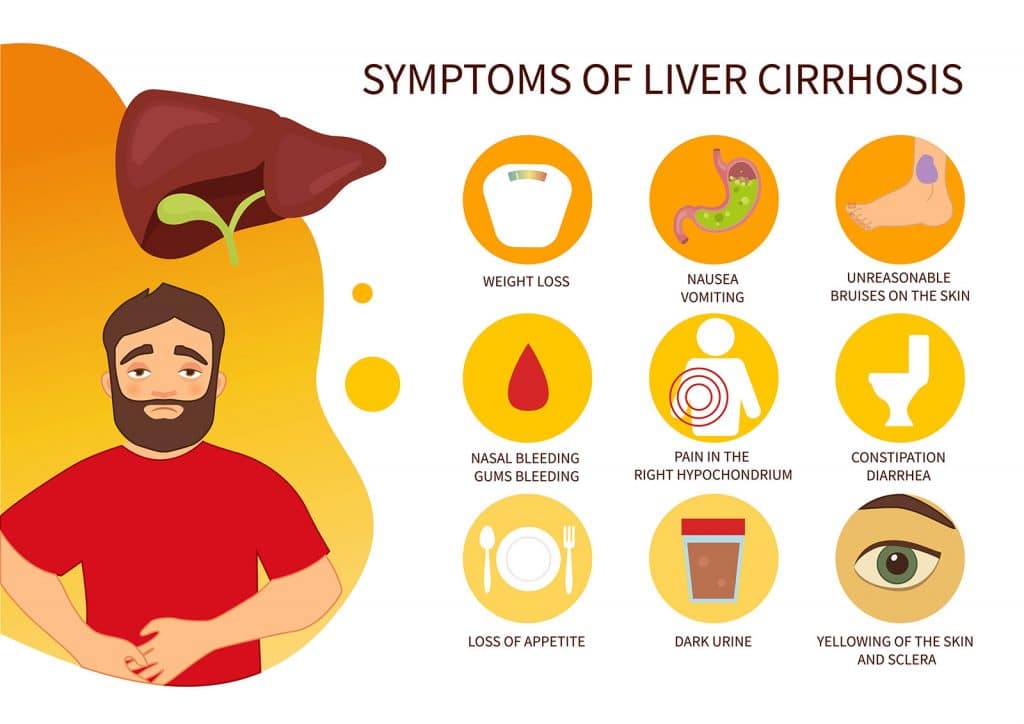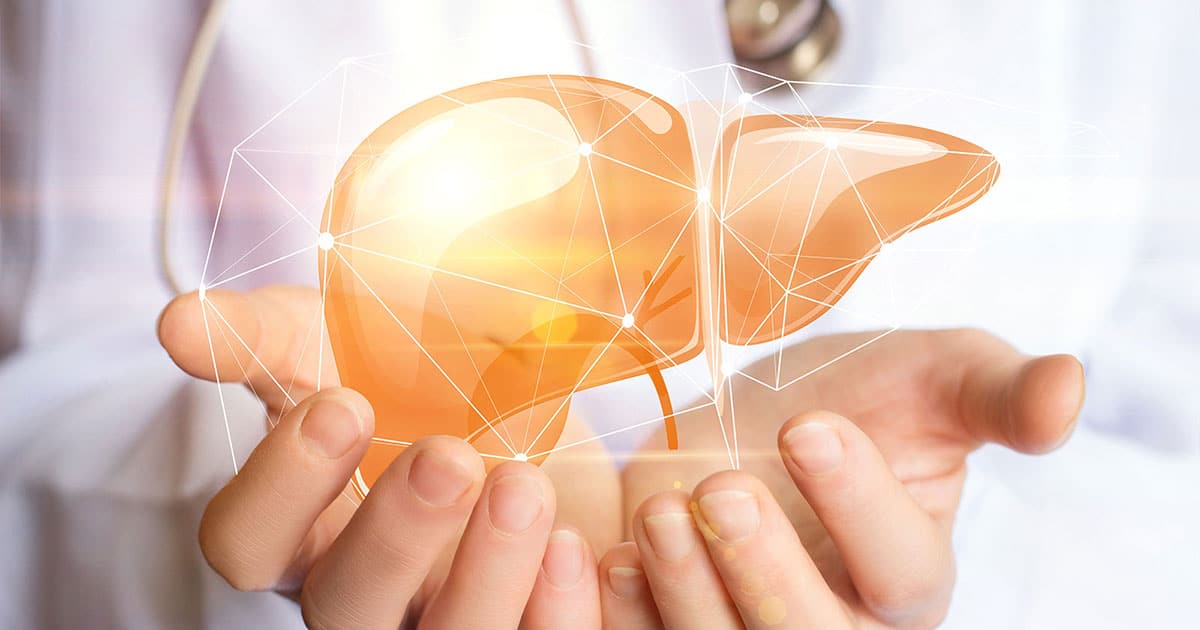Your liver is one of the essential organs in your body, and it removes all kinds of toxins and other unhealthy substances from your bloodstream when functioning correctly, including alcohol.
Over years of sustained alcohol abuse, though, your liver function can start to fade. Before long, symptoms will begin to appear. You may notice a yellow color developing in the whites of your eyes and on your skin. You may start to experience forgetfulness. Other symptoms can include itching skin, unexplained weight changes, and red palms.
Of course, you may already know what these symptoms are because you have already experienced them. Your liver failure — specifically cirrhosis or a type of fatty liver disease called alcoholic liver disease — may have been one of the things that triggered you to seek treatment for your alcoholism.

One of the best things you can do to stay on track is to notice the milestone you have reached during recovery. Each day of sobriety is an accomplishment all its own, but it’s not the only good thing you’ll see. The improvements in your health that you will experience with your sobriety will also motivate you to stay with your program.
The good news is that your liver can heal itself. Elimination of alcohol consumption can give your liver the rest it needs to generate new hepatocytes that will help improve its function and boost your overall health.
With that said, let’s look at what your liver will do to remind you that every day without alcohol is helping your health get better.
Table of Contents
Signs your liver is healing:
Stabilized Weight
Your liver’s poor function has direct linkages to your metabolism. As a result, you may experience weight changes that don’t seem to make sense. Many alcoholics suffer digestive issues like ulcers that lead to poor nutrition, yet they still gain weight because of liver failure. At the same time, you may end up losing weight even with high caloric intake from food and high-carbohydrate drinks like beer.
Ultimately, liver damage is a metabolic issue, which affects how your body utilizes food. This is the reason for the unpredictability of the symptoms you’ll experience with liver failure.
Whether your bathroom scale showed you an upward trend or a downward trend, getting sober will start to clear up your liver function and get your metabolism on track again. You’ll soon find that the changes in your weight will make more sense and will be more in line with what you’d expect based on your diet and exercise.
Improved Color
As fatty liver disease progresses, it allows certain toxins to accumulate in the body. The poor function of the organ does not let it do its job correctly, leading to higher and higher concentrations of those substances in the blood. Eventually, these toxins become so numerous that they become visible through the skin and in the whites of the eyes.
This is a condition known as jaundice, and it is an obvious sign of severe liver problems. Once your liver begins to heal, however, the color will start to clear up. You’ll regain those bright, clear eyes that you had before. Your skin will no longer have the yellow cast that revealed the severity of your addiction. As you begin to see these improvements develop, you’ll find renewed dedication to your path of sobriety.
Regained Appetite
A greater interest in food is a common occurrence in anyone fighting back against addiction. Whether it’s cigarettes, alcohol, or illegal substances, there will always be a degree of increased appetite in someone making a healthy change.

However, that is different from the increased appetite you will experience as your liver begins to restore itself. The decreased function it exhibits as a result of alcohol abuse will interfere with your appetite, and that is because the liver plays a role in digestion and its work in filtering toxins from your blood.
Once you turn the corner and let your liver begin to restore itself, your improved digestive function will trigger your body to call for more nutrients, giving you a greater appetite.
Better Bloodwork
As your health declined during your alcoholism, you may have gotten some lab work done at the hospital or a doctor’s office. Most likely, the results revealed decreased liver function, and the caregiver probably informed you of the dangerous situation it created for your health.
Once you entered recovery, your liver got to work right away on repairing itself. Of course, this process eventually shows noticeable results like improved color and reduced pain. Still, it may be complicated to detect the incremental changes taking place in those earliest days.
As a result, your return visits to the doctor after you’ve begun treatment can provide some vital feedback about your progress, even before there are any visible changes in your body. An evaluation of your bloodwork will indicate lower levels of key toxins, and your doctor will point those out to you. These markers are a great way to see the improvements you are making in your health after quitting alcohol.
If you feel your recovery is stalling or need a little reminder of the progress you’re making, ask to have labs done so that you can get a status update.
Reduced Pain
When your liver does not work correctly, it begins to clog with waste materials and starts to swell. With limited space to expand, the liver quickly begins causing pain. While the discomfort may be of varying intensity and may even go away, the overall trend is for the pain to increase and become more sustained.
As soon as you stop using alcohol, your liver will begin to catch up on its delayed workload. A better level of function will allow it to start clearing out the accumulation of waste and reducing its inflammation. The result to you will be a clear trend toward much less pain.
A Sharper Mind
The backlog of toxins created by liver damage has more effects than just the way you feel and the way you look, and it also impacts the way you think. The confusion and “brain fog” created by poor liver function can cause several problems, making it very hard for you to focus on getting sober.

Much like reducing the pain you’ll experience with sobriety, you’ll also have a rapid improvement in your mental state. You will feel more alert, have a more remarkable ability to concentrate, and see improvements to your short-term memory.
As you become more alert, you will also be able to pursue an education or hold down a job, giving you greater self-esteem and more reinforcement of your progress toward sobriety.
Greater Energy
As your liver trends toward a total shutdown, you will find that you don’t have any energy. You will not feel like doing ordinary things that had never seemed all that demanding before your alcoholism took hold.
The reason for this sluggish feeling is the inefficiency with which your metabolism is operating under liver failure. Energy cannot enter your bloodstream, and waste cannot be excreted when your liver cannot do its job. The result is a sluggish feeling that compounds the depression of alcohol use and contributes to an overall downward spiral.
As your liver begins to heal, you will start to feel your energy level go up. It may be a subtle change at first, but with every passing day of sobriety, you’ll experience a steady and undeniable difference toward a more energetic feeling. The strength you regain will help fuel your ongoing recovery, building momentum toward a better life.
A Soothed Stomach
The digestive issues associated with liver disease will often show up as nausea and vomiting. When your stomach is already irritated from alcohol abuse, it can be excruciating and even dangerous to experience these symptoms, especially on top of the upset stomach caused directly by your alcohol intake and intoxication.

Conclusion
After you start your new life without alcohol, these symptoms will improve. Liver function will improve, getting your digestion back on track. Your stomach will settle, making it possible for you to function normally and improve your nutrition, building your strength and reinforcing your ability to fight back against your alcoholism.
Your liver is just one of many organs that are negatively impacted by alcoholism. Fortunately, its ability to recover (to a certain extent) should give you hope that it will get back to near normal during your recovery. Not only should this fact encourage you to get sober, but it should also support your ongoing sobriety by serving as a reminder of the danger your health faced during your addiction.
Liver disease is a potentially deadly consequence of alcoholism. In your sobriety, one of the first things you’re likely to see is improving liver function, a step that is likely to help you stay dedicated to your recovery and a brighter, healthier future.


